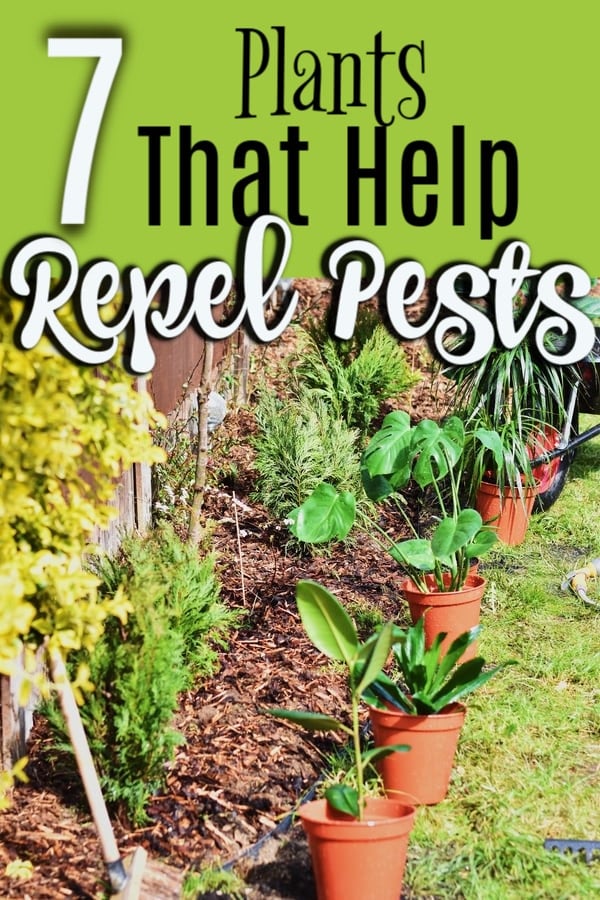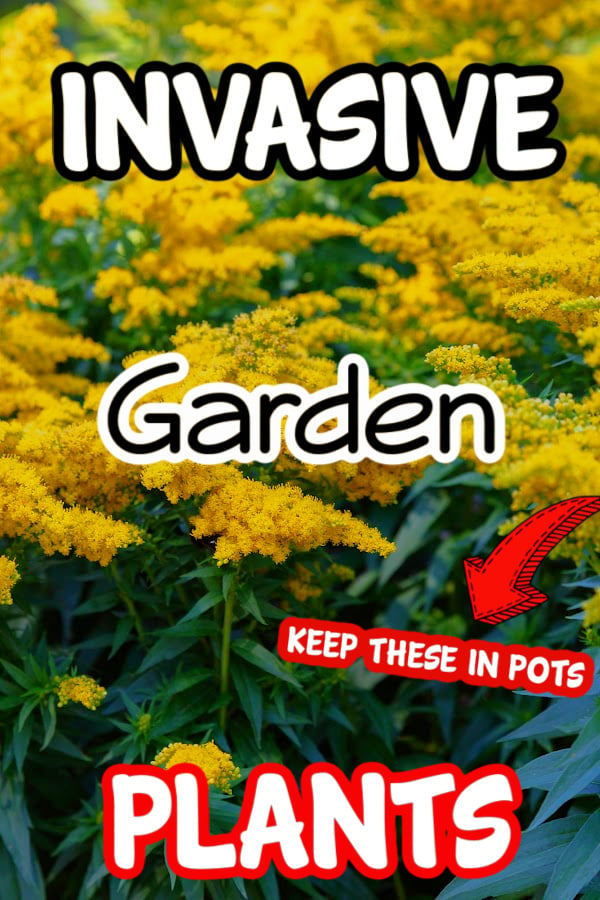
How To Get Rid Of Whiteflies Naturally
When left unchecked, large numbers of whiteflies can wreak havoc on an otherwise healthy and thriving garden. These tiny white insects not only suck plant sap from your healthy plant tissue and plants, but they also spread diseases weakening the plants in your garden, including your greenhouse plants. They can also be major pests of ornamental-infested plants.
Many people have asked me for a home remedy for whiteflies on tomato plants. The treatments are the same for most plants.
They are dreaded tiny white flies with white wings. Also, these pests are so minuscule that they can actually fit through the holes of most mesh screens. This means that even if your healthy plants are tucked away in a greenhouse, they may not be safe from these creatures.
The good news is there are natural ways to get rid of whiteflies on plants that won’t cause any harm to your other plants. Today, we’ll be talking about how you can get rid of these pests naturally. Let’s start!
What Are Whiteflies?

Whiteflies are tiny white flying bugs or flying insects that feed on the leaves of garden plants. They typically lay hundreds of whitefly eggs and often stay underneath the entire plant foliage, so it can be challenging to spot them from afar.
Your indoor plants can also fall victim to whiteflies. That’s why so many people have asked, how do I get rid of whiteflies?
So it’s always good to check the undersides of leaves. They also tend to be impervious to cold weather and are known to survive during the winter. Whitefly populations also develop rapidly in warmer weather/ warm climates.
You Might Also Like: 7 Homemade Bug Sprays For Indoor Plants

Species of Whiteflies
- Trialeurodes vaporariorum
- Greenhouse whitefly
- Silverleaf whitefly is also known as the sweet potatoes whitefly
- Giant whitefly
When we talk about How To Get Rid Of Whiteflies In The Garden Naturally, it’s not just because they are annoying; it’s also because they suck the sap out of plant leaves and the underside of leaves and hinder proper photosynthesis, which starves your plants.
They also secrete a sticky substance called honeydew that not only causes fungal infections or fungal diseases but will attract ants to your garden.
Damage They Cause

Whiteflies tap into the phloem of plants which introduces toxic saliva and decreases a plant’s ability to transport water and nutrients throughout its body.
Susceptible plants can quickly be overwhelmed during a whitefly infestation or heavy infestation. Infected host plants typically exhibit yellow leaves and stunted plant growth.
When this pest feeds on your healthy plants, they get weaker. Over time, they become more susceptible to diseases and may even die.
Plus, sticky honeydew secreted by whiteflies can attract a type of fungus called black fungus and black sooty mold, which can spread throughout your garden patch, effectively destroying your yard. That’s why learning how to kill whiteflies on old and new plants is essential.
How To Get Rid Of Whiteflies Naturally

I have often been asked how do you get rid of whiteflies on roses and what kills whiteflies? There are various ways to control whiteflies and prevent infestations.
If you’re not keen on using chemical insecticides, here are some natural, non-invasive ideas for controlling whiteflies:
- Use a vacuum cleaner. Using a cleaning hose, vacuum the underside of your plants until no whiteflies remain. Using a cleaning hose, vacuum the underside of your plants until no whiteflies remain. Using a cleaning hose, vacuum the underside of your plants until no whiteflies remain. When getting rid of whiteflies this way, it may be easier to use a handheld vacuum to eliminate whiteflies from your plants. Make sure to dispose of the contents of your vacuum cleaner somewhere the whiteflies cannot find entry to your garden again.
- To make insecticidal soap, mix together liquid dish soap and water and put it in a spray bottle. Mist your infected plants with this home remedy for whiteflies on plants once every four days until no more whiteflies are left. When using this method, make sure to spray in the evening when the air temperature is cooler.
- Spray Neem oil on vegetables, fruit trees, and flowers to kill whitefly eggs, larvae, and adult insects. Mix 1 oz per gallon of water and spray this whiteflies treatment on all leaf surfaces until completely coated. So if you ever wondered does neem oil kill whiteflies, you now know it does.
- Use yellow sticky whitefly traps for whitefly control. They will attract and manage adults. The yellow color of these traps is attractive to whiteflies and aphids, thrips, leaf miners, gnats, and fruit flies. You can also use yellow cards that are coated with a sticky coating such as Tanglefoot, petroleum jelly, or mineral oil.
- Introduce natural predators or beneficial bugs such as female beetles, tiny parasitic wasps, Encarsia Formosa wasps, and green lacewings to your garden. This tip on how to get rid of whiteflies on plants works because these little critters feed on adult whiteflies as well as on their eggs, which can effectively control any infestation in your garden.
You Might Also Like: 7 Plants That Help Repel Pests

Whiteflies can be a nuisance in any garden. However, natural solutions can help you get rid of them without harming the rest of your garden.
Do you have other tips for How To Get Rid Of Whiteflies Outdoors Naturally and other insect pests in the garden? Let me know in the comments below!
You can also find gardening products I use in my videos here <---
I now have an Amazon Influencer’s storefront. I put the products I use, in my posts and Youtube Gardening videos, there. Shopping there is free and the site gets a percentage of sales. Thanks!
You can go to my storefront using this secure link <----
If you need seeds, this is the company I use <--- and if you use code: farmer1 at checkout, you'll get 10% off your order!



Michael J Borden says
I do not like using insecticides on my vegetable garden, unless it cant be helped of course. I wish no harm to any beneficial and/or predatory insects within my garden. I have some knowledge with garden pests & beneficial insects.
Whiteflies are thee literal bane on a yearly basis, despite precautions taken ahead of time. I found out quite awhile ago that Whiteflies become resistant to most insecticides over time, not to mention the fact that cold weather does not kill them (Central Florida Resident).
Leafminer Flies are another aggravating insect I also have to deal with. The damaging eyesores the Leafminer can cause is disheartening to any gardener. Although they seem far easier to treat/deal with than Whiteflies.
I found a very interesting and completely natural solution for Whitefly infestations. I have rarely used any insecticides as of late, since discovering the power of beneficial predatory insects.
I purchased live Ladybug larvae, live Lacewing larvae, beneficial soil nematodes and a few live Chinese Praying Mantis Ootheca’s (aka) egg sacs. I placed only a few Ladybug & Lacewing larvae on each plant in my garden. Those two species have famously voracious appetites for all the soft bodied plant pests (Aphids, Whiteflies, Scalebugs, Mealybugs and Leafminer larvae).
I checked on the more infested plants a few days later after placing the predatory larvae on them. I saw almost none or very little signs of Whitefly activity. I was thrilled and relieved for the successful results that the Ladybug and Lacewing larvae have given me. The Praying Mantids eventually hatched and all the nymphs went their separate ways within my garden.
This was a very educational and informative article regarding these disease spreading plant pests. I hope my input and personal experience with beneficial predatory insects helps anyone reading this.
LPN1982 says
An incredibly well written article regarding these diabolical plant pests. I live in Central Florida and they are the literal bane of my various garden plants.
I tried many of the methods mentioned above and it just seemed these insects laughed at me lol. So I decided to stop using chemicals and try the good old fashioned biological control.
I went out and purchased live Ladybug and Lacewing larvae, then placed several larvae onto each of my plants infested or not.
On day 3 of placing many of these predatory larvae onto my plants, it was like they just almost vanished completely.
The predatory Ladybug & Lacewing larvae have officially done their job very well. I recommend those two particular species of predatory larvae for your garden plants.
The larvae are voracious and can easily consume hundreds of any pest plant insect species within reach. I even managed to hatch out Chinese Praying Mantids from an Ootheca (egg sac) I bought online. The mantis nymphs and even adults will take care of the larger plant pest organisms.
I hope this information helps any who wish to read this.
Dian says
Thanks for sharing your insights!
It’s always helpful to hear other gardeners experiences.
Thanks again,
Dian
LPN1982 says
Thank you ma’am. I really appreciate your response. I struggled with those pest insects for a long time. 2 years ago I planted 3 summer squash, 2 Roma Tomato, 2 Sicilian basil, 2 Bell Pepper and 1 watermelon plant. All the plants were diseased except 1 Bell Pepper and 1 squash plant survived. Florida’s weather is extremely optimal for Whiteflies.
But we learn as time goes by to try out different remedies to find what works best.
Jude Sears says
Hi, I have a whitefly infestation in my new wormfarm. They are laying their eggs on the matting on top of the worms. Will these natural remedies hurt the worms, do you think?
Dian says
Jude,
Are you sure it’s not soldier fly larva? They are good for your vermicomposting.
If it is definitely whiteflies, then I would try to make sure to cut scraps in smaller pieces so they can work through it faster and also try not to overfeed them as that can cause the issue.
As far as getting rid of them, I would place a bowl of apple cider vinegar near the bin, it will draw them in and they will drown.
I hope that helps, let me know if I can help with anything else,
Dian